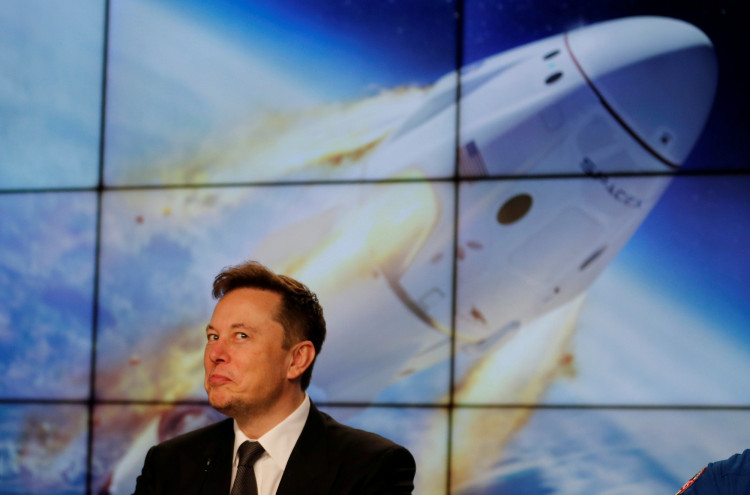US aerospace manufacturing and transportation company SpaceX has just launched an additional 60 satellites into orbit on Wednesday. The small satellites were sent into space using the company's Falcon 9 rocket, which was launched from Cape Canaveral Air Force Station in Florida.
The 60 satellites were the fourth batch of internet-beaming orbital devices that will become part of SpaceX's ambitious orbital broadband constellation called Starlink. The company, which is owned by billionaire entrepreneur Elon Musk, plans to launch a total of 1,500 satellites into orbit.
SpaceX has already been approved to launch a total of 10,000 satellites by aerospace regulators. It is also in the process of getting approval to launch 30,000 more in the coming years. The company's Starlink system is meant to become an affordable and fast satellite internet service for the United States and Canada. SpaceX eventually plans to offer the service to all countries worldwide, including remote places where traditional internet is difficult or impossible to access.
The system uses thousands of mass-produced satellites and ground transceivers to provide wireless internet access. Apart from offering the service to the public, SpaceX also plans to use its Starlink system for military and scientific purposes.
According to Musk, Starlink could provide his company with billions of dollars in revenues per year once it is fully operational. However, the company would likely have to overcome a number of difficult challenges before this is achieved. For one, the cost to complete the project is estimated to reach as high as $10 billion.
The second most crucial challenge for the company is how to build affordable satellite receiving thermals for its customers. Satellite receivers typically use complex antenna systems, which means that they will be much more expensive to buy outright that conventional modems and routers used in broadband connections.
Astronomers and activists have also expressed concerns about having tens of thousands of satellites being launched simultaneously into orbit. SpaceX had addressed the issue and stated that it will be working with the science community to find possible solutions.
Apart from SpaceX, other global aerospace companies have also started launching hundreds of small satellites into space. This has raised concerns about possible collisions in orbit. These types of collisions often result in thousands of smaller particles and parts, which could in turn damage other satellites in the earth's orbit. Regulators have attempted to establish standardized systems for these types of satellites, but have so far been having difficulty in keeping pace with the rapid development.




